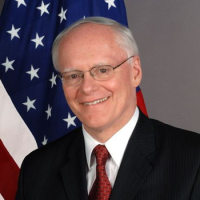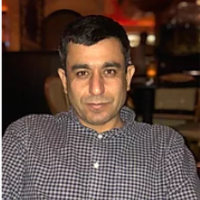Yezidis in Iraq & Syria: Genocide, Recovery & Geopolitical Challenges
In response to ISIS’ genocidal assault of the Yezidis beginning in 2014, the United States assembled a global coalition of 80 countries from around the world to defeat ISIS. Seven years later, Yezidis still struggle to recover in Iraq and in Syria. Hundreds of thousands remain displaced, heavily traumatized, facing threats from an array of actors. The Biden Administration must develop policies for Iraq and Syria that prioritize Yezidi and minority rights and must ensure that Yezidis do not suffer persecution and further marginalization even after the military defeat of ISIS. This panel will discuss the challenges and opportunities for Yezidis, the geopolitical terrain, and possible paths forward for the United States.
Selected Quotes
Pari Ibrahim, Executive Director of Free Yezidi Foundation
"We spend most of our resources to alleviate the suffering the Yezidis and other minorities in Iraq. We must be wise to focus attention on the root causes of the Yezidi genocide. How could thousands of Iraq and foreign citizens engage in brutal and systematic attacks against Yezidis, including crimes committed by our own neighbors?... The daily discrimination, the hatred, and 'othering' of Yezidis is what needs to end."
Murad Ismael, Co-Founder and President of Sinjar Academy; Co-Founder and Former Director of Yazda
"I do not believe in quick cures, especially in cases like genocide and persecution that are very much rooted. I believe in hard work on everybody’s part… It is not a struggle for power, it is merely a struggle to live in dignity and respect. For me, personally, it is a struggle I fight and we have to fight so we do not find Yezidi women and children enslaved again."
Amy Austin Holmes, Public Policy fellow and former Visiting Scholar at Harvard University
"I believe the Biden administration has an opportunity here to lead the international community in genocide response and recovery and that we have the tools already at our disposal to do so... In the ceasefire agreement negotiated by Vice President Pence with Turkey in October 2019 [it] required Turkey and the United States to commit themselves to the protection of religious and ethnic minorities and civilians. What needs to happen is for this commitment that is on paper on the ceasefire agreement to actually mean something in reality and to allow the hundreds of thousands of people, in particular religious and ethnic minorities, who fled to return safely to their homes... and live there free of persecution.
Ambassador James F. Jeffrey, Chair of the Middle East Program
"About six months ago, $50 million in stabilization funds focused on religious ethnic minorities in northeast Syria, which Congress appropriated, the administration released... The new administration absolutely has committed to keeping its forces on in both Iraq and northeast Syria to continue the fight against ISIS, that is their official purpose for being there, but by their very presence they maintain a degree of stability and a degree of peace."
Nadine Maenza, Commissioner of the United States Commission on International Religious Freedom (USCIRF)
"The areas governed by the Autonomous Administration of North and East Syria (AANES) remained a “uniquely promising area in terms of religious freedom conditions.” This multi-ethnic, multi-religious government allows Muslims, Christians, Yazidis and other to practice openly, express, and even change their religious identities – while facing significant peril due to threats from Turkey, their Islamist militias, The Assad Regime, and remnants of ISIS... No doubt life is still difficult for many religious minorities, but there is freedom. And there is a future to build upon."
Speakers

Former ambassador to Iraq and Turkey, and Special Envoy to the Global Coalition To Defeat ISIS

Research Professor of International Affairs and Acting Director of the Foreign Area Officers Program, George Washington University



President, International Religious Freedom Secretariat
Introduction

Moderator

Hosted By

Middle East Program
The Wilson Center’s Middle East Program serves as a crucial resource for the policymaking community and beyond, providing analyses and research that helps inform US foreign policymaking, stimulates public debate, and expands knowledge about issues in the wider Middle East and North Africa (MENA) region. Read more

